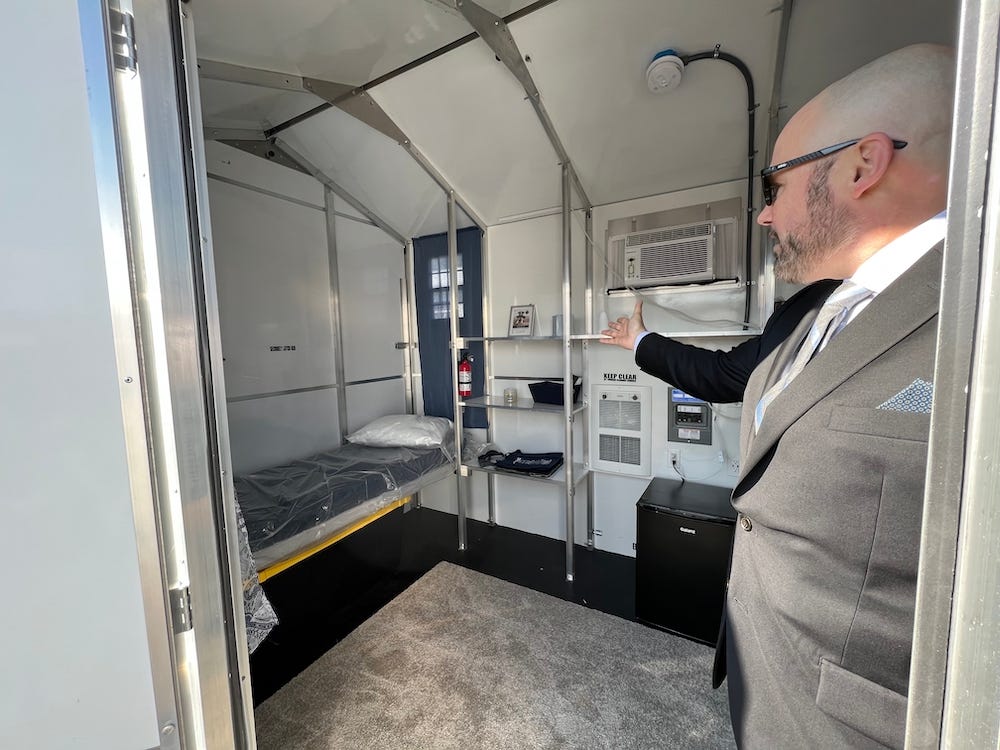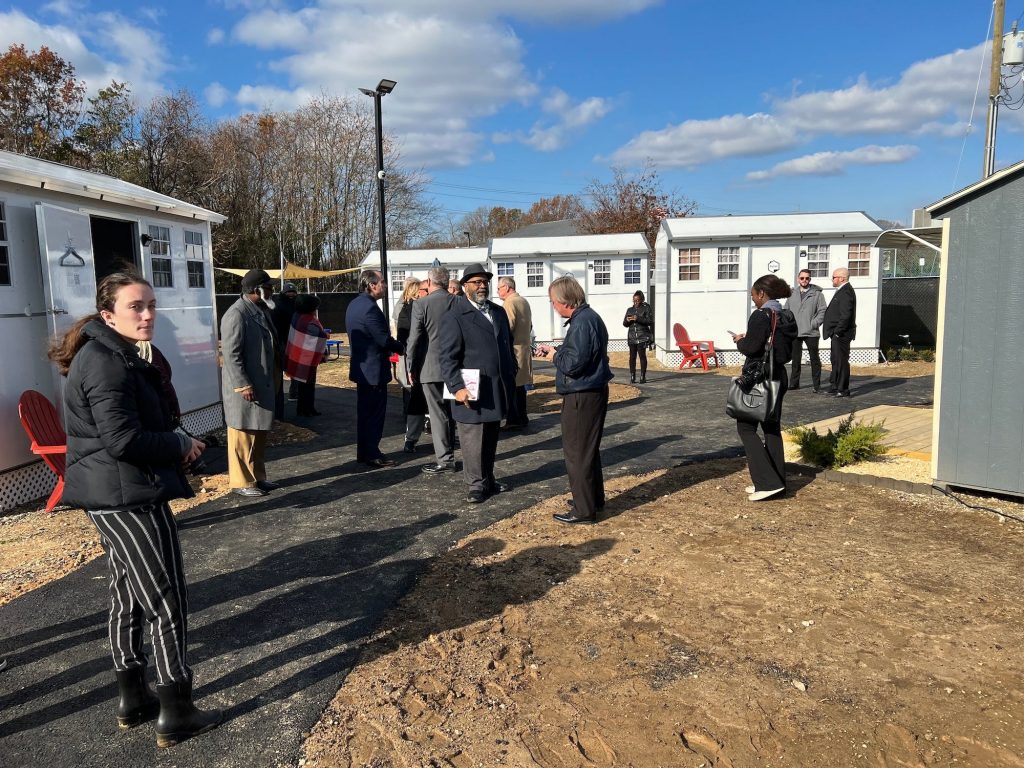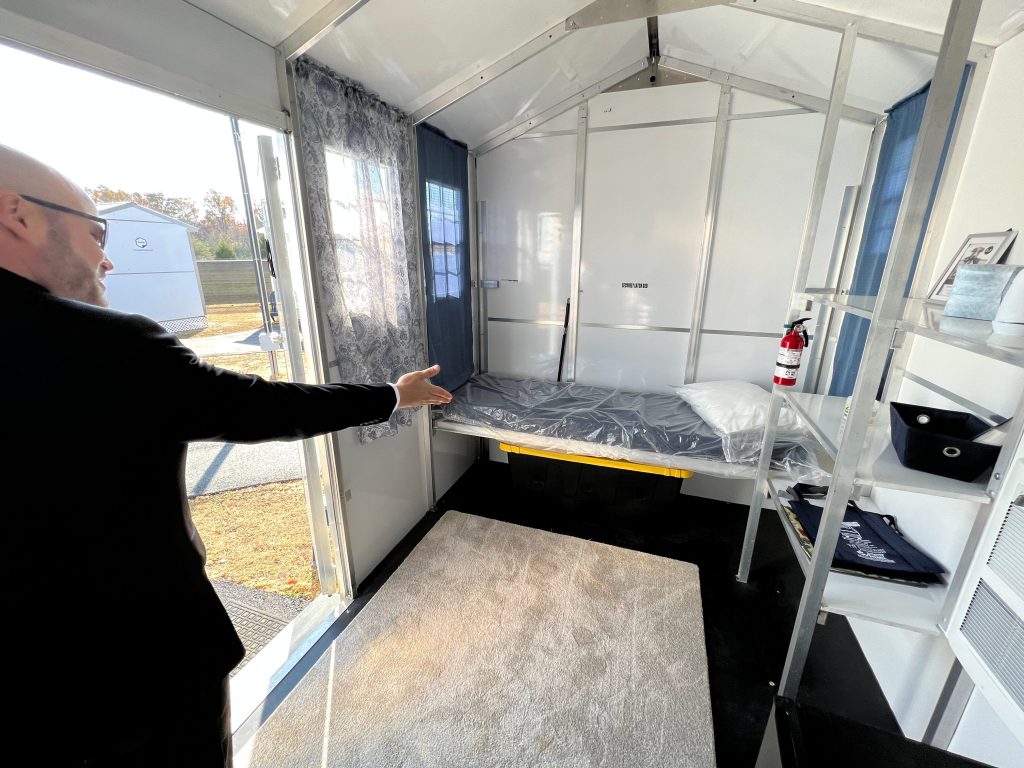- A New Jersey nonprofit built a tiny-home community for recently released inmates.
- The six 100-square-foot pods are equipped with essentials like a bed and mini fridge.
- The nonprofit hopes that the tiny homes will establish a sense of community and better integrate participants back into society.
A town in Southern New Jersey is thinking outside the box to address unstable housing for recently released inmates by providing them with temporary tiny homes.
A regional nonprofit, Gateway Community Action Partnership is creating a village that includes six pods that contain a bed, writing desk, storage space, and a mini fridge, as well as heating and cooling appliances.
Village of Hope, located in Bridgeton, a town of 26,610 that’s 50 miles west of Atlantic City, was built by tiny-home manufacturer Pallet Homes, which specializes in building small shelters for the homeless. All six homes were constructed in less than a week.

“I’m just happy that this dream has come true,” Bridgeton Mayor Albert B. Kelly, who is also the founder and CEO of the Gateway Community Action Partnership, told the Burlington County Times. “That we’re able to be of assistance to those who are exiting the halfway house, and they don’t have to live on the streets.”
Washington-based Pallet Homes started building homes for those experiencing homelessness in 2016 and has built 63 shelter villages across the country, according to its website, including building tiny homes for people who lost their homes due to natural disasters. Pallet has built tiny homes in 11 different states across the country from California to Massachusetts.
The Village of Hope is designed to help integrate newly released inmates into the community by first giving them a place to stay. The Kintock Group, a non-profit organization that specializes in reentry programs, offered up land next to one of its halfway houses to build the 100-square-foot pods.
While there is no regulated size, typically tiny homes are less than 600 square feet.
Paul Taggines, COO of the Kintock Group, told Insider that each home cost about $15,000 on average to construct, and operation costs are anticipated to be under $3,000 a month. A bill that the Gateway Community Action Partnership will be responsible for.

The stay for released inmates at the Village of Hope is capped at 180 days, but their time there is meant to be temporary.
“We’re ready to take program participants immediately,” Taggines said. “We’re working with parole to identify who they want to send into the program.”
The Kintock Group and the Gateway Community Action Partnership will also provide transitional services like helping them acquire state identification, finding jobs, and a place of their own.
“Homelessness is a problem,” Kelly said. “And this is one way of demonstrating how we can, not only house those who are coming out of a halfway house, but perhaps we can expand on this for our homeless in our inner cities. And that’s what our hope is.”
Dit artikel is oorspronkelijk verschenen op z24.nl
